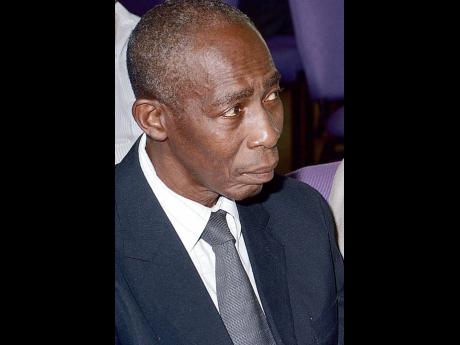‘Very hard for family’
Attorney for Keith Clarke’s wife says despite a ‘roller coaster ride’ relatives see glimmer of hope in Court of Appeal ruling
The family of Keith Clarke who was killed at his home during a military operation remains determined while welcoming yesterday’s Court of Appeal ruling authorising the resumption of the trial for his alleged murder.
“Today’s ruling that the trial will proceed, we regard that as an element of success, but remain firm in the view that the minister has no valid authority to override the director of public prosecutions (DPP).
“And we believe that any attempt to interfere with a criminal trial that has been commenced by the director is wrong, said attorney-at-law Leonard Green who is representing Clarke’s widow, Claudette.
The accountant was shot 21 times at his Kirkland Heights home in upper St Andrew on May 27, 2010, purportedly as part of a manhunt for Christopher Coke in the wake of a failed and bloody bid to capture the then fugitive in his Tivoli Gardens den.
Three soldiers, Corporal Odel Buckley, Lance Corporal Greg Tinglin and Private Arnold Henry, were charged for his murder but at the start of the trial in 2018, their attorneys showed up with certificates of immunity for each of the accused soldiers, bringing the trial to a halt.
The certificates were signed by former Minister of National Security Peter Bunting in February 2016, nearly six years after Clarke’s death and four years after the soldiers were charged with murder.
But the Constitutional Court, in its majority decision handed down in February 2020, said the certificates were manifestly unfair and unreasonable and that they were null and void.
However, in the judgment handed down yesterday, the Court of Appeal struck down the Constitutional Court’s decision that the certificates were without effect and instead ordered that a trial within a trial be conducted by a judge alone, to determine whether the DPP “can rebut the certificates of good faith issued by the minister”.
The panel of three appeal court judges also upheld the Full Court order for the restoration of the trial.
Asked how the family was feeling about the ruling, Green said, “I wouldn’t say that they’re disappointed but they are certainly somewhat apprehensive about what is to come and they are hoping for the best.”
He however reiterated that it has been very hard for the family, especially Clarke’s wife.
“It has been very, very debilitating and depressing for them over the years. And you know, every situation like this is really, really hard for Mrs Clarke, it is very difficult for her to deal with all the ups and downs, the roller coaster ride and it has been challenging for the entire family,” he said.
However, he said it is their hope that the matter will successfully proceed to trial and the family will get the opportunity to put forward their side of the story and the court will ultimately make a decision.
In the meantime, the Court of Appeal judges, in a 56-page judgment, also ruled that the Full Court erred in determining that the delay in issuing the certificates was manifestly unfair and unreasonable and that as a result of the delay, the soldiers should not be allowed to rely on them.
“Arising from these determinations, we have concluded that it is not necessary in this case that the certificates be challenged by way of judicial review but rather, in the circumstances, that a preliminary determination be made by a judge of the Supreme Court sitting without a jury,” they explained.
The good-faith certificates provide the soldiers with a rebuttable statutory immunity to actions carried out by them in the exercise or purported exercise of their functions during the state of emergency at the time of Clarke’s death.
“In that regard, the [Emergency Powers] Act and the Regulations were not found to have been unconstitutional and the certificates themselves were found by the Full Court to be in keeping with the Constitution, save for the issue of delay,” the judgment said.
“In those circumstances, to simply cite unfairness could not be a sufficient basis on which to prevent the soldiers from relying on the certificates,” it continued.
Further, the Appeal Court said the fact that the good-faith certificates were issued before any trial had commenced should also have been given some weight by the two judges who found them invalid.
“The prosecution would have essentially been in the same position if the certificates had been issued in 2012, 2013 or any year before 2018, as no trial had commenced prior to the certificates being presented.”

